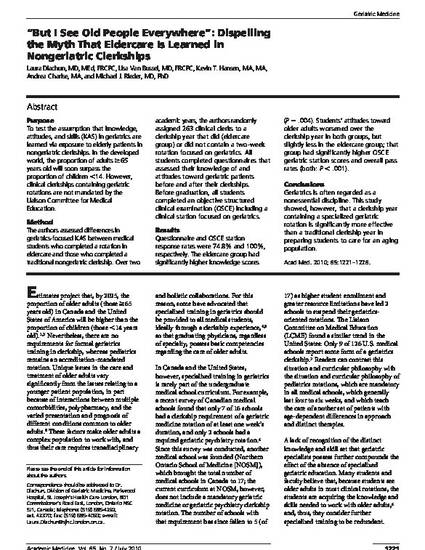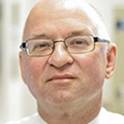
Purpose: To test the assumption that knowledge, attitudes, and skills (KAS) in geriatrics are learned via exposure to elderly patients in nongeriatric clerkships. In the developed world, the proportion of adults ≥65 years old will soon surpass the proportion of children <14. However, clinical clerkships containing geriatric rotations are not mandated by the Liaison Committee for Medical Education. Method: The authors assessed differences in geriatrics-focused KAS between medical students who completed a rotation in eldercare and those who completed a traditional nongeriatric clerkship. Over two academic years, the authors randomly assigned 263 clinical clerks to a clerkship year that did (eldercare group) or did not contain a two-week rotation focused on geriatrics. All students completed questionnaires that assessed their knowledge of and attitudes toward geriatric patients before and after their clerkships. Before graduation, all students completed an objective structured clinical examination (OSCE) including a clinical station focused on geriatrics. Results: Questionnaire and OSCE station response rates were 74.8% and 100%, respectively. The eldercare group had significantly higher knowledge scores (P = .004). Students' attitudes toward older adults worsened over the clerkship year in both groups, but slightly less in the eldercare group; that group had significantly higher OSCE geriatric station scores and overall pass rates (both: P < .001). Conclusions: Geriatrics is often regarded as a nonessential discipline. This study showed, however, that a clerkship year containing a specialized geriatric rotation is significantly more effective than a traditional clerkship year in preparing students to care for an aging population. © by the Association of American Medical Colleges.
Available at: http://works.bepress.com/michael-rieder/7/
